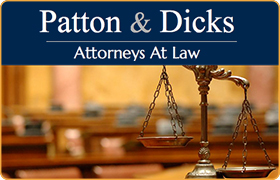Lakeland Criminal Lawyer, Florida, page 6
Sponsored Law Firm
-
 x
x

Click For More Info:
-
Patton & Dicks
465 East Main Street Bartow, FL 33830» view mapCriminal Defense, Criminal Appeals Real Attorneys Fighting For Real People
As Criminal and DUI Attorneys, we defend peoples rights in criminal courts. Find out how our services can help your situation.
863-225-3550
Nicholas Chable Mohr
Family Law, Federal Trial Practice, Criminal, Estate Planning
Status: In Good Standing
Gilberto Colon
Other, Tax, Federal Trial Practice, Federal Appellate Practice, Criminal
Status: In Good Standing
Michael Amico
Family Law, Child Custody, Divorce & Family Law, Criminal
Status: In Good Standing Licensed: 24 Years
Melodie J. Lopez-Johnson
Employment, Personal Injury, Criminal, Social Security, Workers' Compensation
Status: In Good Standing
Shawn A. Jiles
Accident & Injury, Divorce & Family Law, Criminal, Estate
Status: In Good Standing Licensed: 21 Years
Elizabeth Phillips Davis
Family Law, Divorce & Family Law, Criminal, Medical Malpractice
Status: In Good Standing Licensed: 22 Years

 About MeMore Info
About MeMore Info PracticesPatton & Dicks
PracticesPatton & Dicks